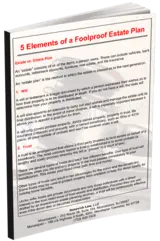The administration of a decedent’s estate is a vital process that helps families respect the wishes laid out in a loved one’s will. A personal representative is the individual who administers a decedent’s estate, and a probate court has the sole authority to appoint and validate a personal representative. In addition, the state’s probate code places a duty on this person to act reasonably and in the interests of the estate. As a result, it is understandable that people who have never been executors may be intimidated by the process. They may wonder what the law says concerning their duties and how they can properly fulfill those responsibilities. Meanwhile, if a representative does not act responsibly, heirs might wonder what options they have for challenging the actions of this person.
A Moorestown estate administration lawyer could help both personal representatives and heirs better understand their rights and duties under the law. An experienced estate planning attorney could suggest the best steps for personal representatives and help heirs evaluate whether another representative fulfilled their legal obligations.
What Must a Personal Representative Do?
A personal representative is perhaps the most important person during probate and the process of administering an estate This individual has the sole power to take temporary possession of a decedent’s property, pay the decedent’s debts, and distribute the remaining property to the named heirs.
While this may seem like a straightforward process, state law establishes strict rules concerning the actions of personal representatives. For example, New Jersey Revised Statute § 3B:10-26 says that a personal representative must act as a prudent person would when dealing with the property of an estate. In other words, a personal representative must act reasonably in the eyes of other parties when serving in this role.
Additionally, personal representatives must act solely in the interests of the estate. This means that any action they take must be to preserve the value of the property in the estate. An estate administration attorney in Moorestown could provide more information about state law and the important duties of personal representatives.
What Happens if a Personal Representative Fails in their Estate Administration Duties?
There is no doubt that state law places a heavy burden on personal representatives to properly administer an estate. In fact, if a court or a decedent’s heirs believe that a personal representative has not acted carefully in the best interests of an estate, they can work to hold this person responsible for their actions.
Any accusation of a personal representative’s failure to administer an estate can have significant consequences. At the minimum, a probate court could replace this personal representative. In the most extreme situations, the members of an estate could sue the representative and hold them personally liable for all damage that resulted from the failure to properly administer the inheritance.
An estate administration lawyer in Moorestown could help nominated personal representatives take the necessary steps to fulfill their obligations under the law. They could also represent the interests of heirs or beneficiaries who believe that a representative has failed in their important duties.
Contact a Moorestown Estate Administration Attorney to Learn More
The proper administration of an estate requires the help of competent personal representatives. These people receive substantial powers from probate courts to take possession of property, pay debts, and distribute the remaining assets. In exchange for this power, representatives must act only in the interest of estates and behave as reasonable people would under the circumstances.
A Moorestown estate administration lawyer may be able to help you if you have recently received an appointment as a personal representative. They could explain your job, suggest steps to fulfill your obligations under the law, and help submit reports to the court. An attorney could also help heirs and estate members who believe that a personal representative has acted inappropriately. Reach out to our team now to schedule an appointment.

 (856) 439-6223
(856) 439-6223
